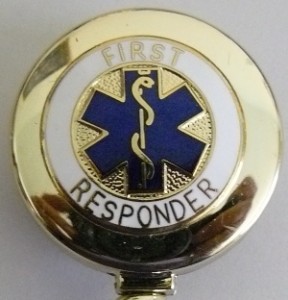Carry your entire medical history with you, in your pocket.
Never forget your doctor's appointment or to take your medication again.
Use your smartphone, cell phone, or PDA to access your records on the go!
Securely store your medical records such as X-Rays, test results and doctor's notes.
After the overwhelming response we had to the infographic we recently put out (I placed it at the bottom of this post as well in case some missed it), we decided to take it another step further and make a video showing how antiquated the current medical records system is. From the numerous emails we received, we knew once it was displayed out for everyone, the infographic would make people wonder why we are still in the dark ages when it comes to sharing medical information with doctors. Please pass this video along if you find it enlightening!
- By medefile Submitted on February 15th, 2011
Your career paths for the medical profession used to be pretty limited: doctor, nurse, and hospital gift shop cashier. Now there are more “ologists” and other esteemed medical professions than there are cells in the human body. With federal funds being pumped into the healthcare access and infrastructure via the recent healthcare legislation passage, the number of new gigs will only increase. So polish your resume, pick up some scrubs and study “Gray’s Anatomy” (The medical text, not the show).
First Responder Physicians
 When the bucket brigade slides down the pull, slaps on their helmets and peels out of the garage, they know it’s more likely they’re responding to a bad asthma attack, and not a three-alarm blaze. The same is true of Johnny Law, who needs to keep a First Aid Kit beside his Taser X26. Of 85,000 911 calls made in the Mile-High City in 2009, no one was brought to the hospital a third of the time, according to a Denver Post report. The problem runs rampant from coast to coast, as those with routine ailments ranging from sprained ankles to bloody noses call 911 because they feel they have nowhere else to turn. No doctor, no insurance, just a phone.
When the bucket brigade slides down the pull, slaps on their helmets and peels out of the garage, they know it’s more likely they’re responding to a bad asthma attack, and not a three-alarm blaze. The same is true of Johnny Law, who needs to keep a First Aid Kit beside his Taser X26. Of 85,000 911 calls made in the Mile-High City in 2009, no one was brought to the hospital a third of the time, according to a Denver Post report. The problem runs rampant from coast to coast, as those with routine ailments ranging from sprained ankles to bloody noses call 911 because they feel they have nowhere else to turn. No doctor, no insurance, just a phone.
- By medefile Submitted on February 5th, 2011
An editorial in the New England Journal of Medicine discusses sleep deprivation among doctors and surgeons, concluding with the recommendation that they should be required to disclose this information to their patients prior to elective surgery. Needless to say, this editorial has been very controversial in the medical community.
Most people are probably unaware that the average surgeon, especially those who perform the more routine procedures such as appendectomies, works very long hours. Contrary to the public perception of a doctor working a handful of hours a day and then heading off to the golf course, the reality is that most work 12-18 hour shifts routinely. This is especially true of the “Residents” in a hospital & doctors who are on duty during their first three years of post-graduate medical training.
- By Kevin Hauser Submitted on February 3rd, 2011


